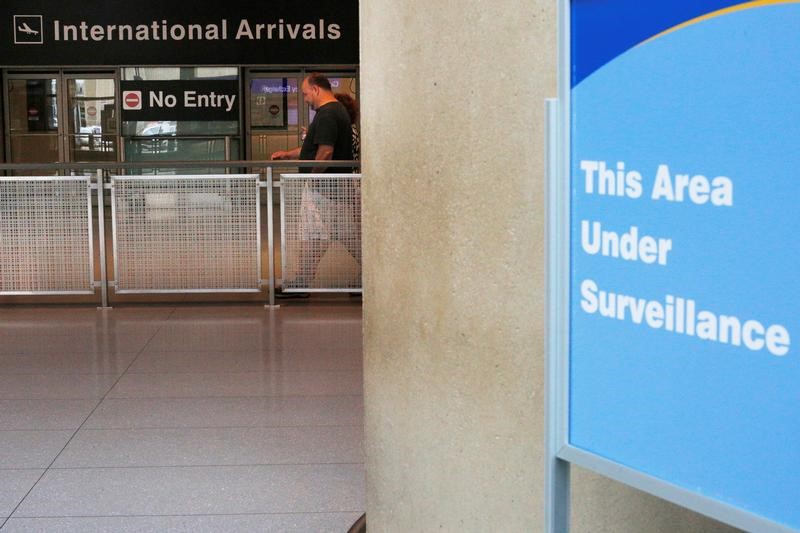By Yeganeh Torbati
WASHINGTON (Reuters) - The Trump administration moved on Thursday to make permanent a new questionnaire that asks some U.S. visa applicants to provide their social media handles and detailed biographical and travel history, according to a public notice.
The questionnaire was rolled out in May as part of an effort to tighten vetting of would-be visitors to the United States, and asks for all prior passport numbers, five years' worth of social media handles, email addresses and phone numbers and 15 years of biographical information including addresses, employment and travel history. (See:
A State Department official declined to provide data on how many times the form had been used or which nationalities had been asked to fill it out since May, only stating that it estimates 65,000 visa applicants per year "will present a threat profile" that warrants the extra screening.
President Donald Trump ran for office in 2016 pledging to crack down on illegal immigration for security reasons, and has called for "extreme vetting" of foreigners entering the United States. On Wednesday, he threw his support behind a bill that would cut legal immigration to the United States by 50 percent over 10 years.
The Office of Management and Budget, which must approve most new federal requests of information from the public, initially approved the form on an "emergency" basis, which allowed its use for six months rather than the usual three years.
The State Department published a notice in the Federal Register on Thursday seeking to use the form for the next three years. The public has 60 days to comment on the request. (See:
The questions are meant to "more rigorously evaluate applicants for terrorism, national security-related, or other visa ineligibilities," the notice said.
While the questions are voluntary, the form says failure to provide the information may delay or prevent the processing of a visa application.
Trump ordered a temporary travel ban in March on citizens of Iran, Libya, Somalia, Sudan, Syria and Yemen. After months of legal wrangling, the Supreme Court in June allowed the travel ban to go forward with a limited scope.
The form does not target any particular nationality.
Seyed Ali Sepehr, who runs an immigration consultancy in California serving Iranian clients applying for U.S. visas, said that since late June, all of his clients who have been referred for extra security checks have also been asked to fill out the new form.
Kiyanoush Razaghi, an immigration attorney based in Maryland, said he knows of Iraqis, Libyans and Iranians who have been asked to fill out the form.
Immigration attorney Steve Pattison said one of his clients, who is not from one of the six travel ban countries, had been asked to fill out the new form when applying for a visitor visa, indicating that consular officers are using it broadly.

"It could be that everyone is missing another consequence of the use of the form – its deployment in a far wider sense to cover all sorts of individuals," Pattison said.